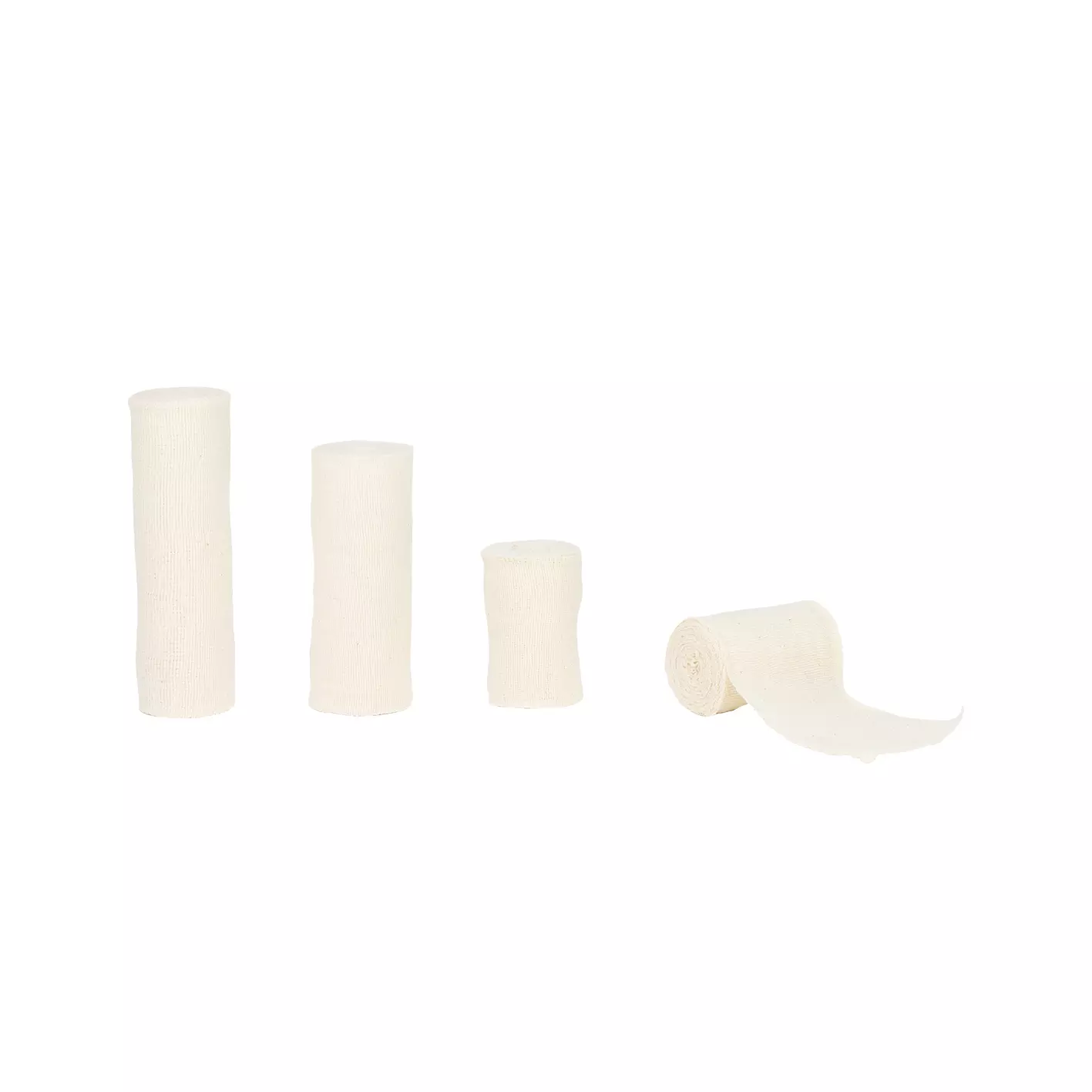Ideal bandages - for supporting and immobilising muscles and joints
Ideal bandages are the origin of today's bandages. In the early days, they were made of 100 per cent cotton and were simply boiled for "disinfection". Today, in addition to pure cotton bandages, there are a wide variety of mixed fabrics, mostly with polyamide and polyurethane. Their speciality is their elasticity, which makes them suitable as first aid material for various injuries to muscles and joints.
Available, delivery time: 1-3 days
What characterises an Ideal bandage
As standard, Ideal bandages are 5 metres long when stretched and vary in width between 4, 6, 8, 10 and 12 cm. Our non-slip Ideal bandage Wero Swiss® Last is available as a single bandage in a cellophane sleeve and, depending on the size, with one or two bandage clips. The bandage can be securely fixed in place with the clips, which are hooked into the fabric of the bandage once it has been applied. Our adhesive plasters are an alternative fixation aid.
Due to the nature and material of an ideal bandage, they can be sterilised and washed. This means they can be boiled in hot water and then reused without hesitation. Our Wero Swiss® Last is also latex-free and can therefore also be used if you are allergic to latex.
Permanently elastic fabric promises long-lasting functionality
High-quality Ideal bandages are also permanently elastic. This means that the fabric contracts back to almost its original length after it has been stretched. In practice, this prevents the bandage from wearing out due to permanent strain. For this reason, Ideal bandages are particularly suitable for treating musculoskeletal injuries.
Thanks to their versatility, textile elastic bandages are suitable for e.g. support bandages, relief bandages, fixing bandages, compression bandages, sports bandages, etc. ... and should therefore not be used in any dressing. ... and should therefore not be missing from any first aid kit.
What are ideal bandages needed for?
Typical areas of application for a bandage made from an ideal bandage include sprains, strains, dislocations or torn muscle fibres. Here, either the injured body part can be immobilised or relieved or a certain amount of pressure can be exerted on the injured area to prevent swelling (compression). Compression bandages based on ideal bandages also usually provide significant relief in the case of joint inflammation or tendonitis. Pure compression bandages (also known as short-stretch bandages due to their elasticity) are used for venous disorders. However, Ideal bandages can do even more: they are also suitable for securing sterile wound dressings, applying a moist dressing and, if necessary, for securing splints.

